Pakistan vows to respond after India launches strikes in wake of Kashmir massacre
Pakistan is "trying to avoid" a "full-fledged war," defense minister tells CNN

Pakistan’s defense minister has warned that India’s latest assault marked an “invitation to expand the conflict” between the two neighbors — but cautioned that Islamabad is “trying to avoid” a full-fledged war.
New Delhi’s deadly barrage on Punjab and Pakistan-administered Kashmir early Wednesday was a “clear-cut violation,” according to Pakistani Defense Minister Khawaja Muhammad Asif.
He insisted that Pakistan’s military was braced “for an all-out war,” after India raised the “stakes” this week — following decades of tensions in one of the most militarized places in the world.
“What happens next is we are prepared for an all-out war. There is absolutely no doubt, because India is increasing the intensity, the stakes of this conflict,” added Asif. “So… we can’t be caught with our guards down.”
Where things stand: India’s assault killed at least 26 people, including a 3-year-old girl, and wounded at least 46 other people, according to a Pakistani military official. A senior Indian defense source said at least 12 people had been killed by Pakistani shelling on the Indian-administered side of the border.
In India’s capital, civilians have mixed reactions to strikes on Pakistan

In India’s capital, New Delhi, civilians who spoke with CNN had mixed feelings about the government’s decision to carry out a series of overnight strikes on Pakistan.
The Indian government said the strikes were carried out in response to an April terror attack in India-administered Kashmir that killed at least 25 Indian citizens.
One woman in Delhi said she felt “that war might make the things more terrible, for the economy, for the civilians, for the people who are going to fight for on behalf of us,” while another said she didn’t support the decision by the government to strike Pakistan.
But some supported the government’s actions, with one woman telling CNN she was “very happy” that the government had taken action, giving “kudos to Prime Minister Narendra Modi.”
Another man said he doesn’t “hate the normal people of Pakistan. I would love to meet them. I would love to hang out with them, but the government of Pakistan I really hate,” he told CNN.
“It’s a very big word to say hate, but I do hate the Government of Pakistan because they have known that these terrorists can have a very big impact on the normal likes of people in Kashmir, and they still allow them to stay there.”
Pakistani prime minister praises "brave and valiant" air force following claim it downed 5 Indian jets
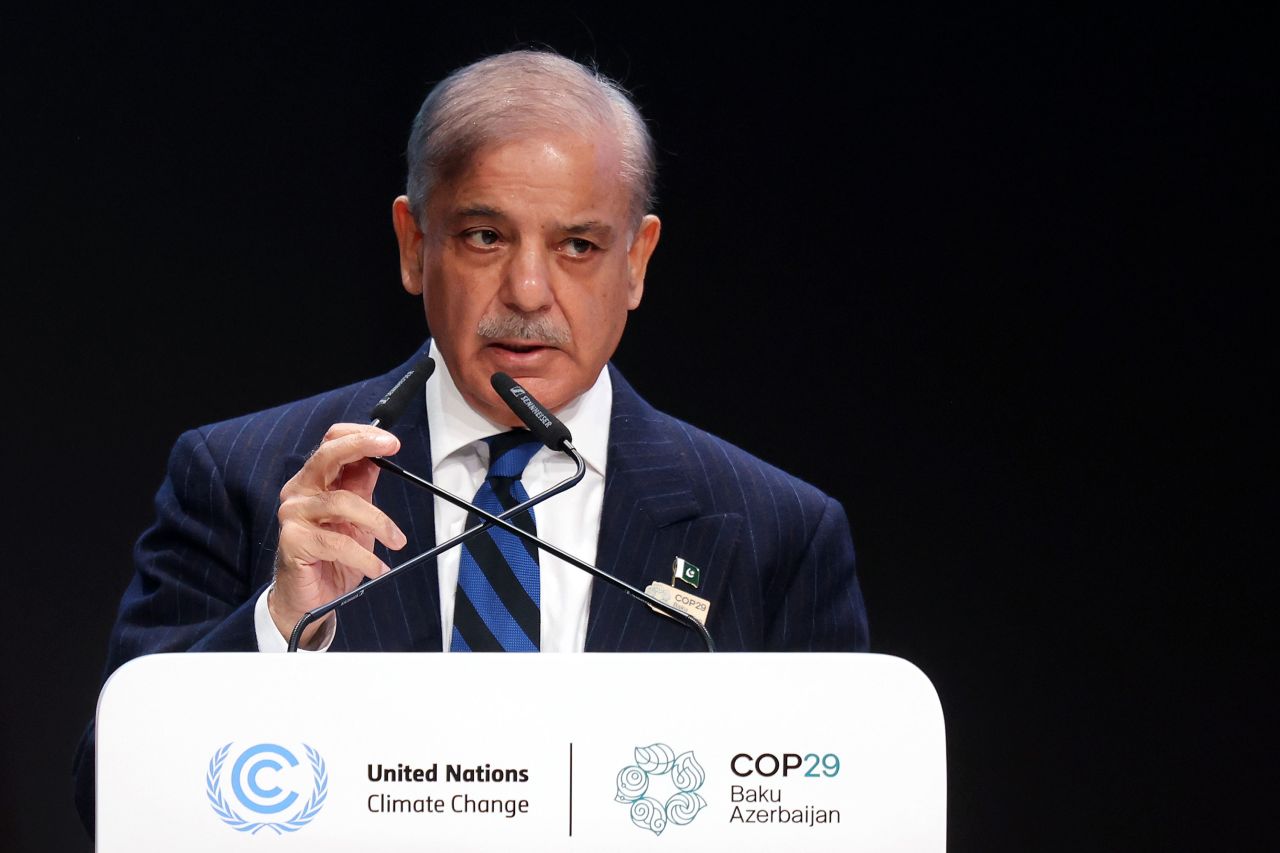
Pakistan’s Prime Minister Shehbaz Sharif lauded his country’s air force following a claim by military sources that it shot down five Indian fighter jets.
Sharif praised the Pakistani military’s readiness “to deal with the enemy’s planes,” as he addressed the country’s parliament in capital Islamabad for the first time since India’s attack early on Wednesday local time.
The prime minister also told lawmakers that India used dozens of warplanes in its attack. India’s assault killed at least 26 people, including a 3-year-old girl, and wounded at least 46 other people. according to a Pakistani military official.
Sharif did not elaborate on how Pakistan might respond to India’s attack, after he earlier described it as an “act of war.” His office said the country’s military had been “authorized to undertake corresponding actions in this regard,” according to an earlier statement.
“A few days ago, India was proudly showing off its purchase of Rafale jets. But one shouldn’t be too proud,” Sharif told lawmakers. “These jets flew from there in combat form, but our air force was also prepared.”
Lawmakers filled the country’s parliament building with calls of “Pakistan Zindabad,” which translates to “Long Live Pakistan.”
Earlier on Wednesday, Pakistani military sources said they brought down five Indian fighter jets and one drone in an act of “self-defense” — including three Rafale aircraft, which are highly sophisticated multi-role jets manufactured in France. CNN cannot independently verify the claim and has reached out to the Indian government for a response.
Death toll from Pakistani shelling rises to 12 in India-administered Kashmir, source says
The number of casualties from overnight shelling by the Pakistani military on the Indian side of the Line of Control in Kashmir has risen, with 12 civilians killed and 57 injured, a senior Indian defense source told CNN.
India and Pakistan have had near-daily exchanges of fire across the Line of Control since the April 22 tourist massacre that sent relations between the two sides plummeting.
Pakistan’s military previously confirmed it shelled Indian positions in Indian-administered Kashmir overnight in response to India’s airstrikes on its territory. India accused the Pakistanis of unprovoked firing over the Line of Control, the de facto border that divides disputed Kashmir.
Qatari PM speaks to Indian and Pakistani officials, expressing "deep concern"
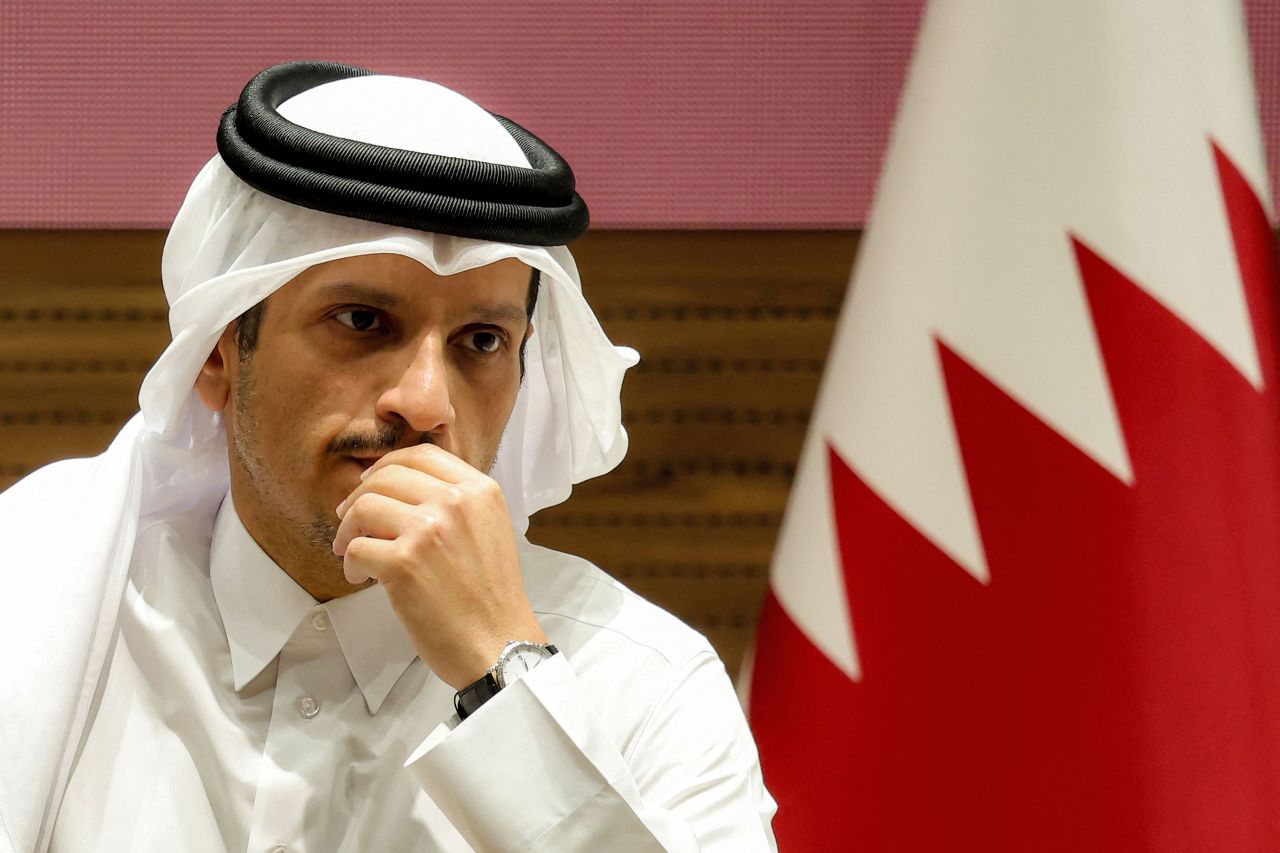
Qatari Prime Minister Mohammed bin Abdulrahman Al-Thani spoke to top officials from both India and Pakistan today, holding a phone call with the Indian Minister of External Affairs Subrahmanyam Jaishankar, and a separate call with Pakistan’s Prime Minister Muhammad Shehbaz Sharif, the Qatari foreign ministry said in two statements.
For context: Doha has successfully acted as a mediator recently. Qatar was one of the actors mediating talks between Israel and Hamas that led to a temporary ceasefire earlier this year, played a role in discussions that led to the return of deported Ukrainian children from Russia, and facilitated the freeing of an American citizen who spent more than two years in detention in Afghanistan.
Here's how global players have reacted to India's military operation against Pakistan
India’s military operation inside Pakistan comes despite major global players urging restraint in the days leading up to the strikes.
Here’s how major global players have responded:
- United States: President Donald Trump called India’s military operation against Pakistan “a shame.” US Secretary of State Marco Rubio spoke to the national security advisers from India and Pakistan and urged “both to keep lines of communication open and avoid escalation.”
- United Arab Emirates: The UAE has asked for India and Pakistan “to exercise restraint, de-escalate tensions, and avoid further escalation that could threaten regional and international peace.”
- United Nations: UN Secretary-General António Guterres has “expressed deep concern over Indian military operations across the Line of Control and the international border with Pakistan.”
- Japan: Yoshimasa Hayashi, Japanese chief cabinet secretary, said Tokyo was “deeply concerned this incident could incite retaliation and escalate to a full-scale military conflict” and urged both India and Pakistan “to exercise restraint and stabilize the situation through dialogue.”
- China: China has expressed regret over India’s military action against Pakistan and said it’s concerned about the current developments. “India and Pakistan are neighbors that cannot be moved, and both are also China’s neighbors,” a spokesperson for China’s Foreign Ministry said in a statement Wednesday. China has been trying to improve relations with India as part of a broader diplomatic push to counter pressure from the Trump administration. Pakistan, meanwhile, is one of China’s closest partners and a key supporter of its Belt and Road Initiative.
- Russia: Russia’s foreign ministry said it was deeply concerned about the growing military confrontation between India and Pakistan and called for both countries to show restraint, Russian state media TASS reported. The Kremlin has close relations with both India and Pakistan, but has been historically close to New Delhi, dating back to the Soviet era. Russia is also one of India’s key arms suppliers.
- Turkey: The Turkish Ministry of Foreign Affairs said it was following the developments “with concern,” warning that India’s overnight attacks “raises the risk of an all-out war.” “We condemn such provocative steps as well as attacks targeting civilians and civilian infrastructure.” It added that it echoed Pakistan’s calls for an investigation into the April 22 terrorist attack.
India conducts nationwide civil defense drills today
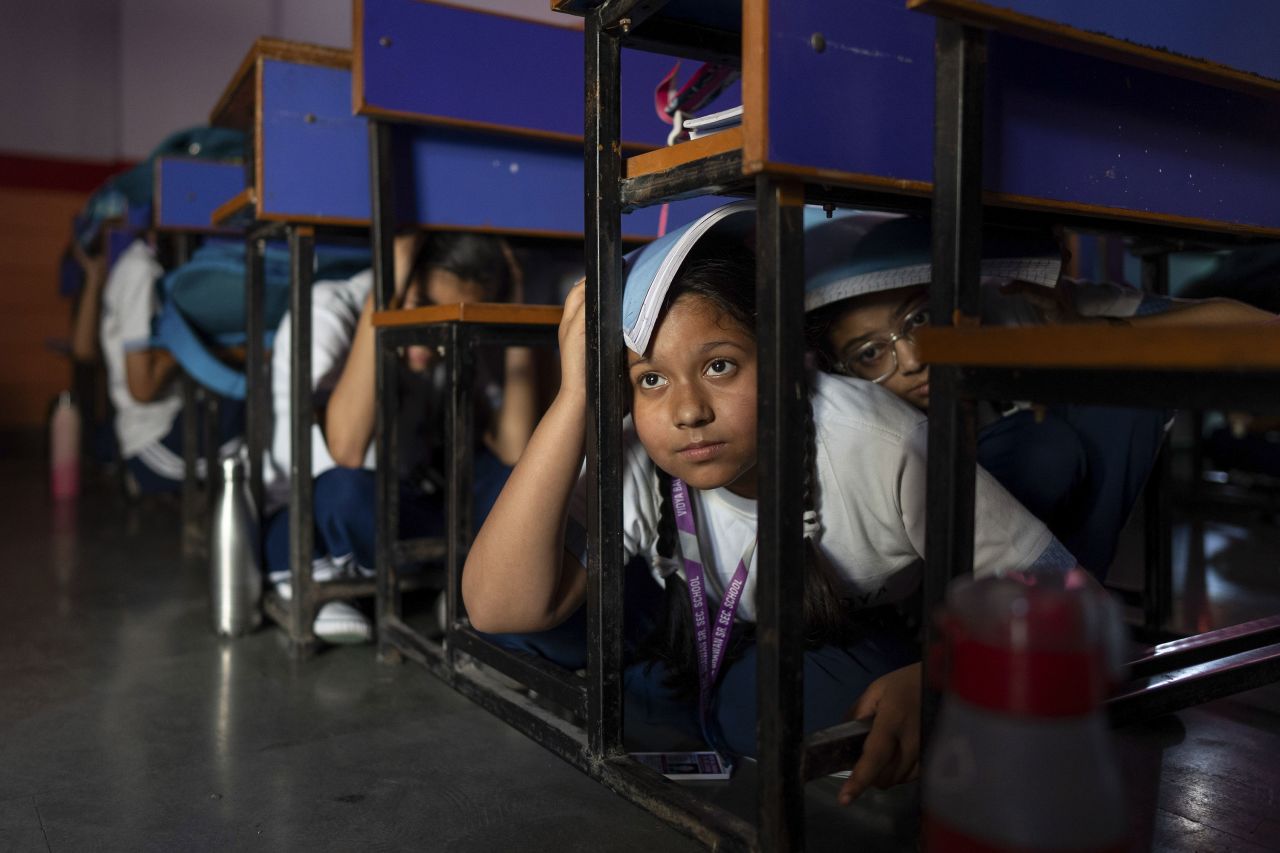
Authorities across India are conducting civil defense security drills on Wednesday, hours after the country launched military strikes on targets in Pakistan.
The drills had been planned before the strikes. In an order from the home ministry not seen in decades, the Indian government had ordered them to be carried out in all states and union territories.

According to official statements posted on X, 244 locations will be included in the drills that will include the sounding of emergency sirens, evacuation procedures and blackouts.
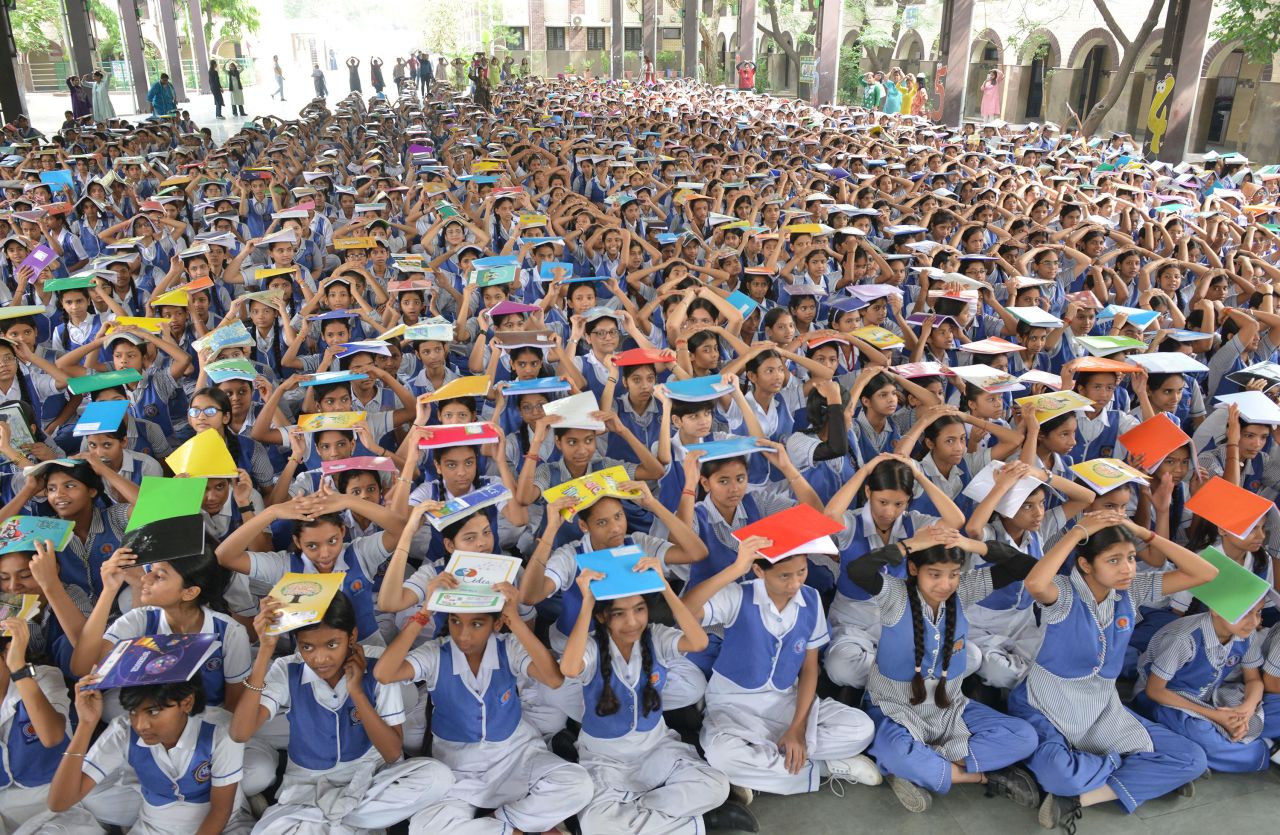
Gulf airlines cancel flights to Pakistan as northern India airport closures disrupt routes

Several Gulf carriers have suspended flights to Pakistan, including Emirates, Etihad and Qatar Airways, with airport closures in northern India also affecting many flight routes.
Emirates has canceled flights from Dubai to Sialkot, Lahore, Islamabad and Peshawar on Wednesday. “Customers on cancelled flights must not proceed to the airport,” it said on its website.
Flights to and from Karachi are not impacted and will be operating as per schedule, the airline said.
Etihad said it had canceled flights to Karachi, Lahore and Islamabad on Wednesday.
“Additionally, some other services may be rerouted to avoid the affected airspace, potentially resulting in extended flight times,” Etihad Airways said in a statement.
Qatar Airways said it had “temporarily suspended flights” to Pakistan, citing Pakistani airspace closure.
“The airline is closely monitoring the situation and will continue to prioritise the safety of its passengers and crew,” it said.
Meanwhile, Indian carriers including SpiceJet and IndiGo have issued travel advisories regarding cancelations to and from destinations in northern India.
Multiple major airlines said Wednesday they were re-routing or canceling planes to and from Europe due to the escalation between India and Pakistan, with more than two dozen international flights diverted to avoid Pakistan airspace, according to FlightRadar24 data.
Keep in mind: Many airlines had already begun to avoid flying over Pakistan prior to India’s strikes early Wednesday morning.
Access restored to social media platform X in Pakistan as conflict breaks out with India
Access to social media platform X, formerly Twitter, has been restored in Pakistan as conflict breaks out with India.
Internet watchdog Netblocks confirmed access to the social media site was restored on Wednesday in an email to CNN.
It had been banned in the country since February 2024, around the time of the Pakistan elections, according to Amnesty International.
In photos: What the conflict looks like on the ground as India and Pakistan teeter on the brink of wider war
As the conflict escalates between India and Pakistan, these pictures show the reality on the ground in Kashmir and both countries.
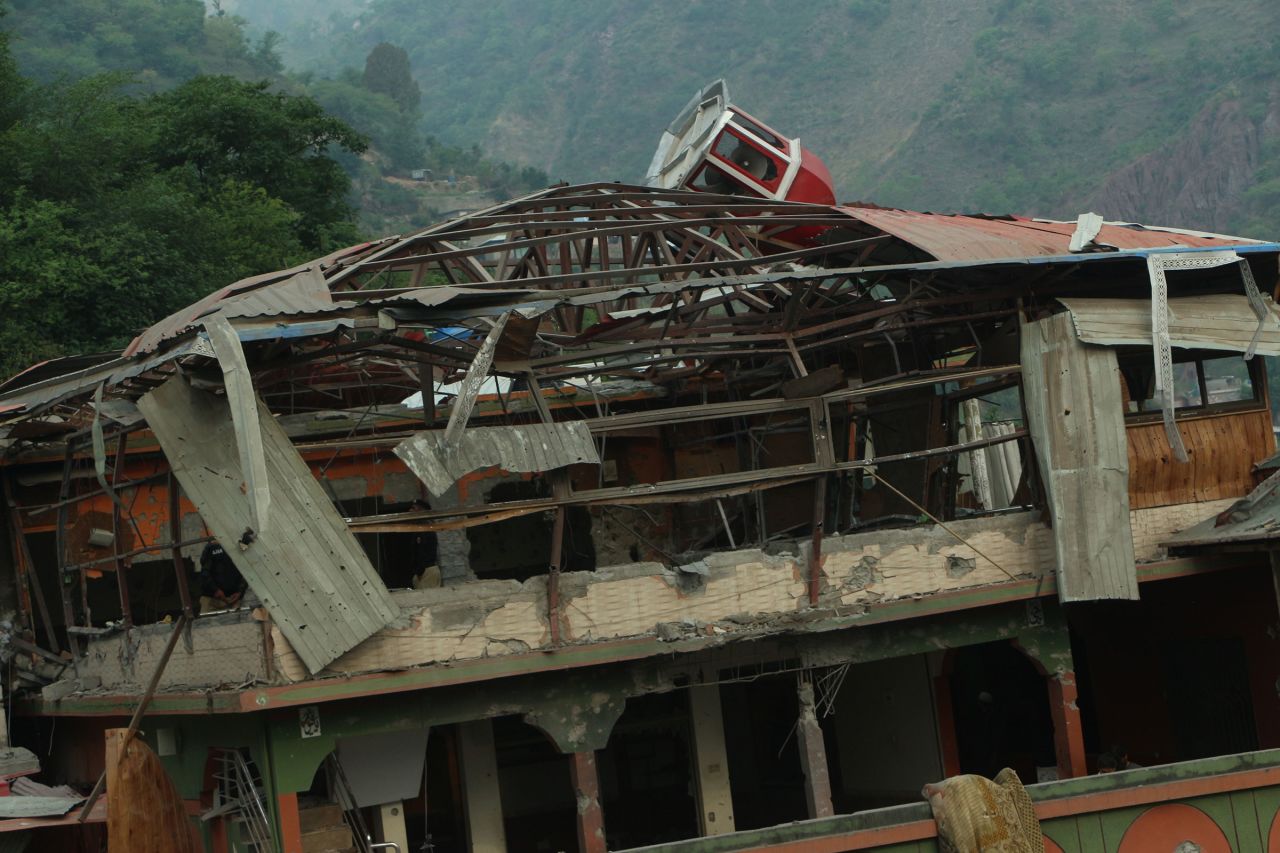

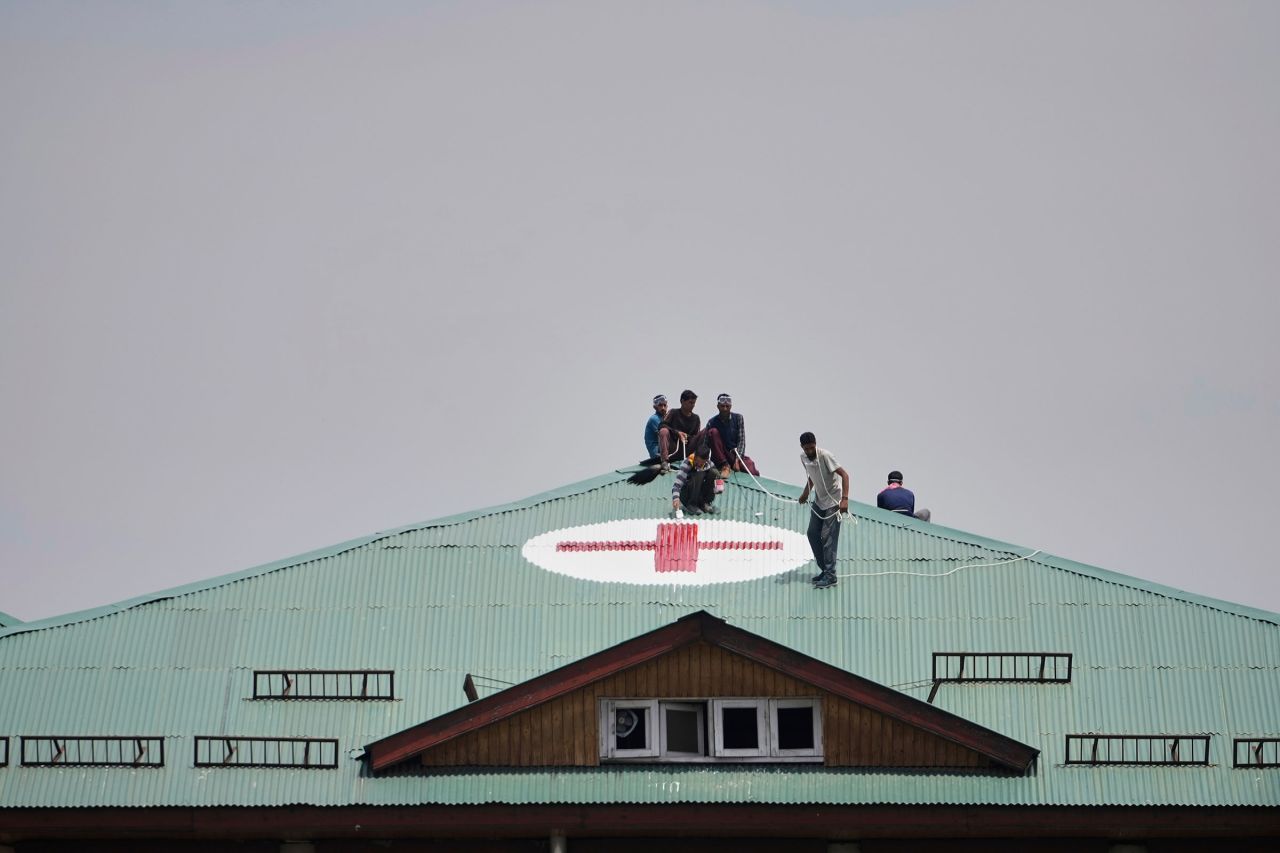
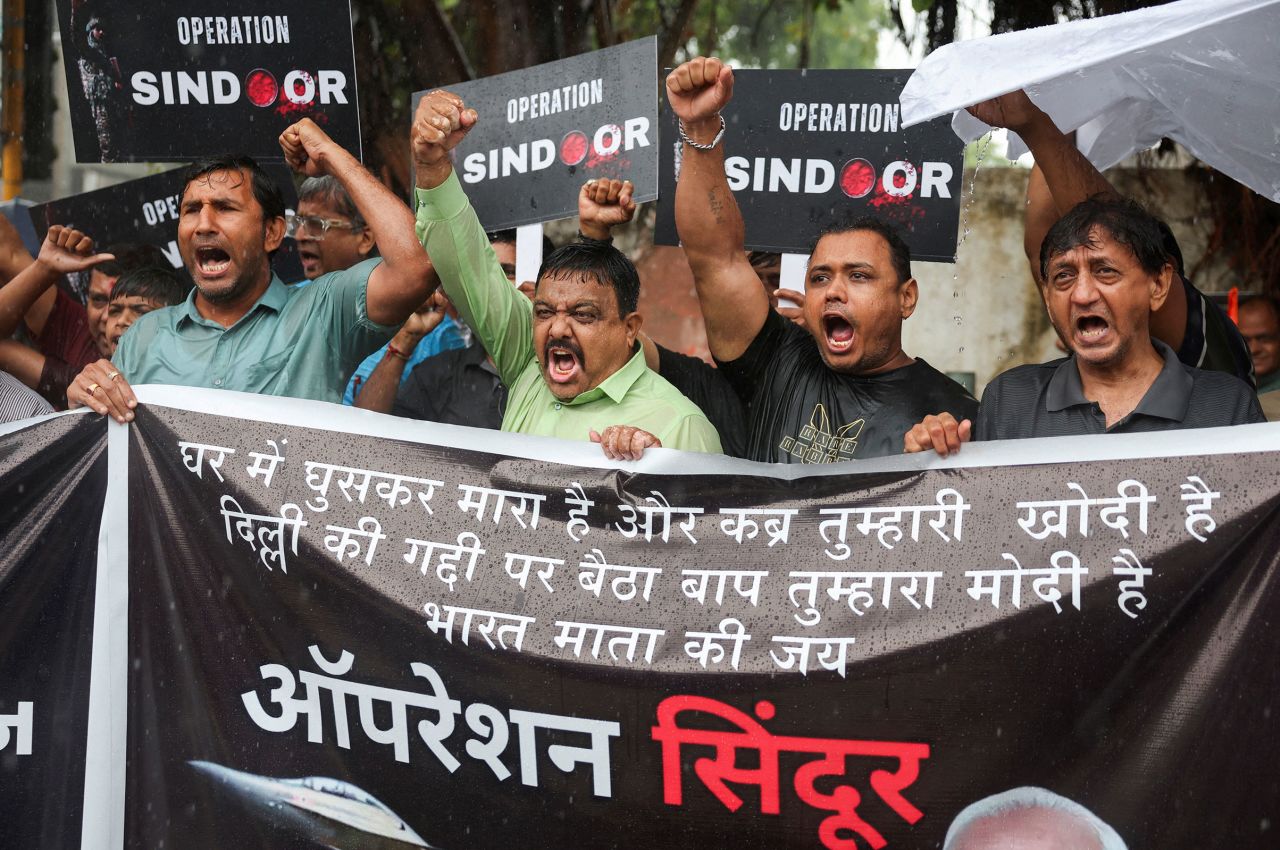
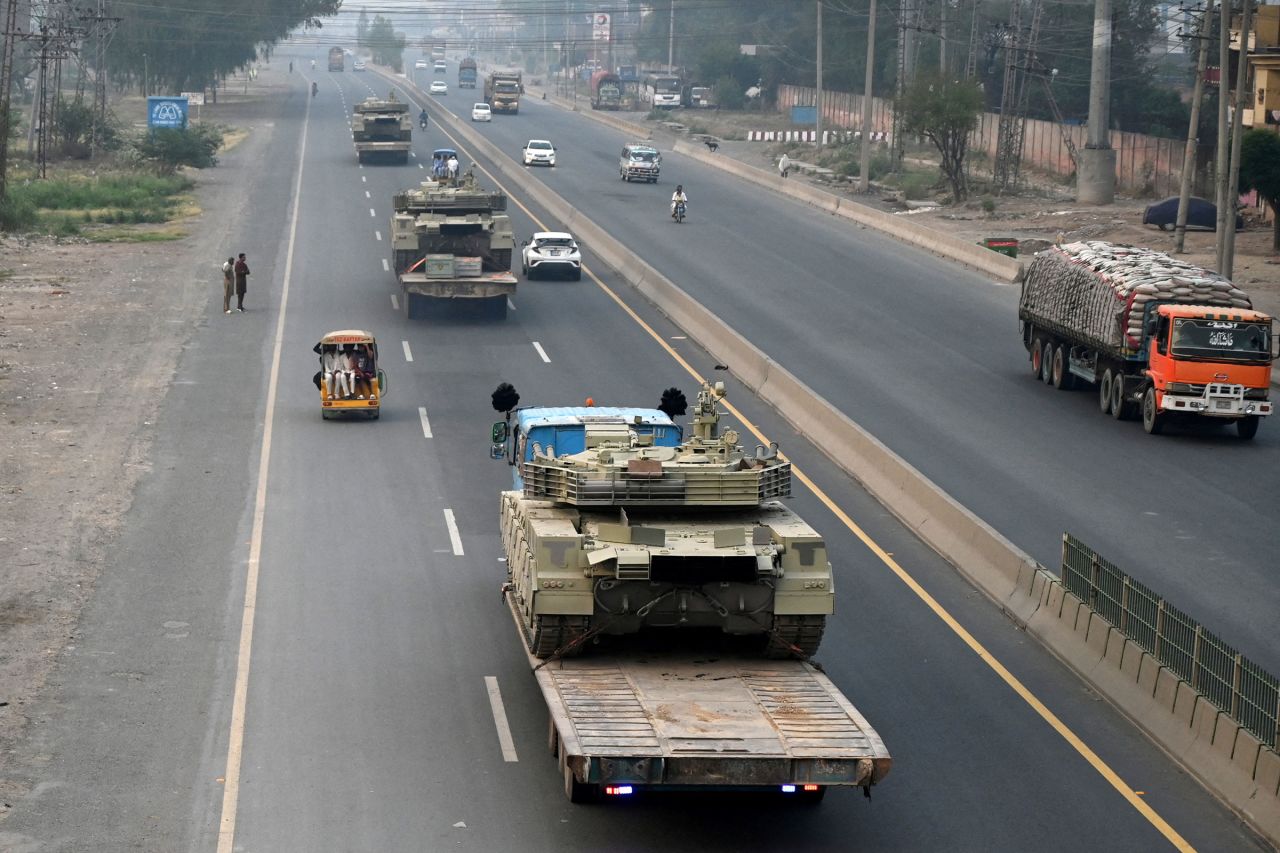
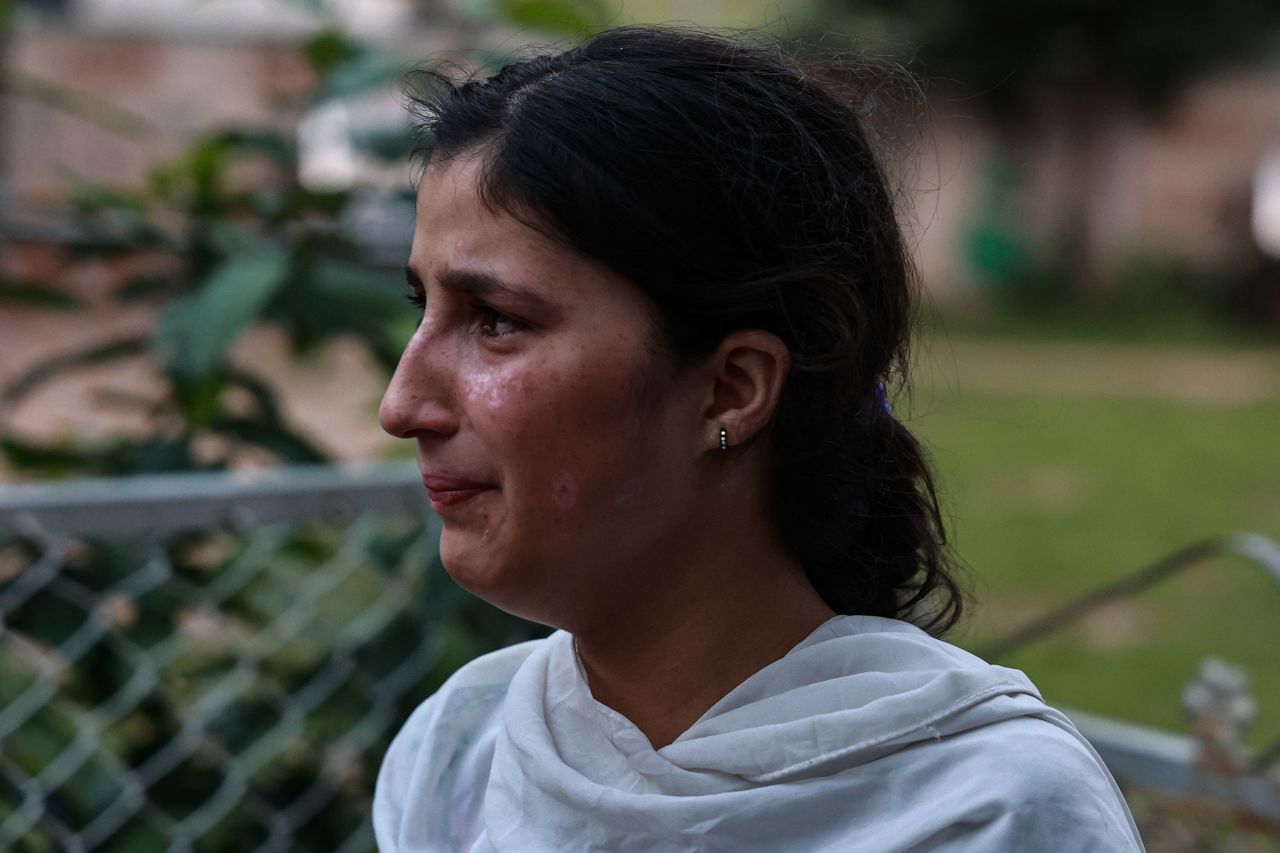


Pakistani military authorized to take "corresponding actions" after India's strikes, prime minister says
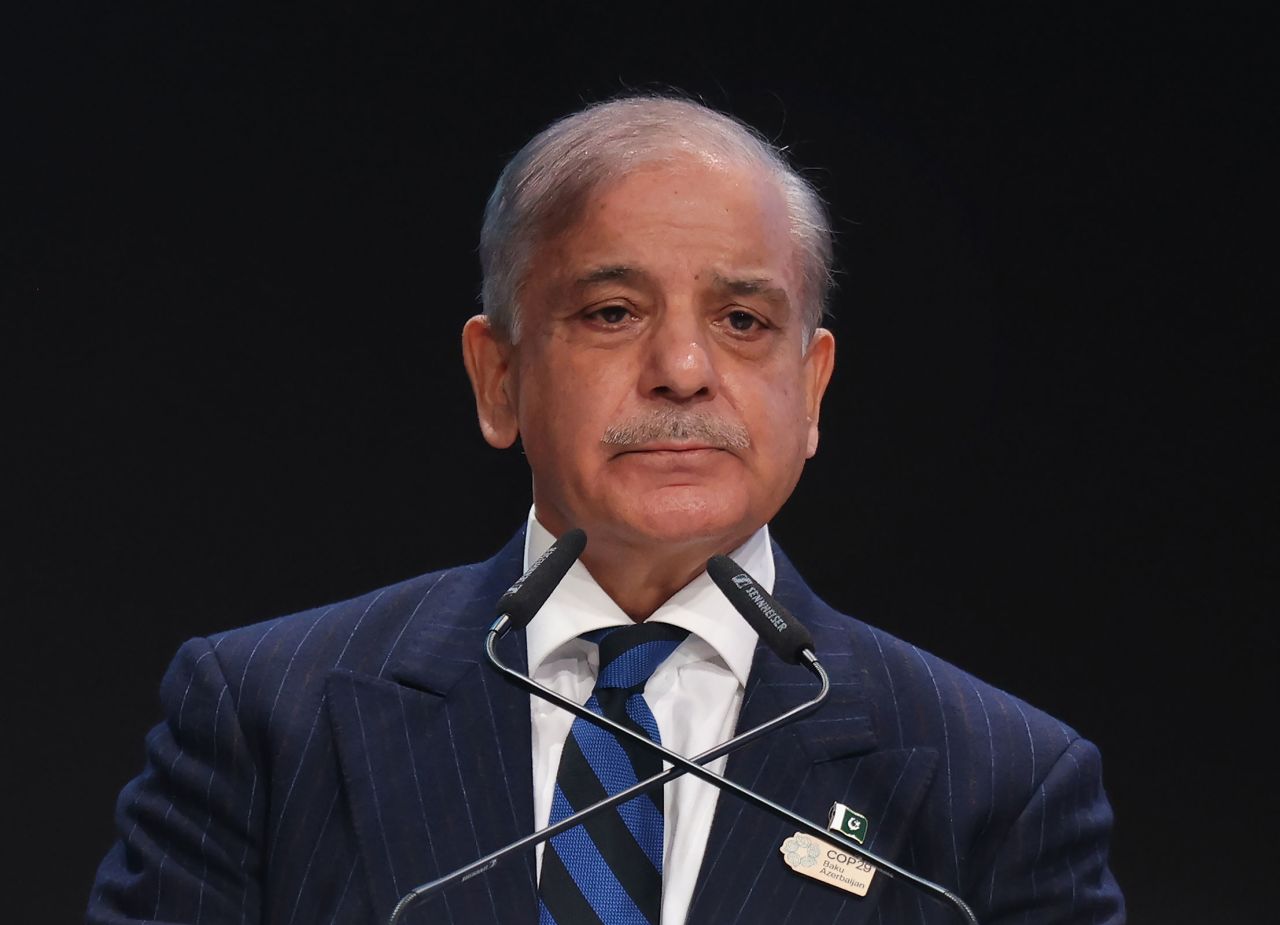
Pakistani Prime Minister Shehbaz Sharif has tasked his country’s military to enact “self-defense” with “corresponding actions,” hours after India launched a barrage of deadly strikes early Wednesday, according to his office.
Sharif called on Pakistan’s Armed Forces to “avenge the loss of innocent Pakistani lives,” after an emergency National Security Commitee (NSC) meeting on Wednesday.
India’s military had struck sites in both Pakistan and Pakistani-administered Kashmir, killing at least 26 people – including a 3-year-old girl – and wounding at least 46 other people.
“The Armed Forces of Pakistan have duly been authorized to undertake corresponding actions in this regard,” the statement added.
“The nation stands galvanized and resolute in the face of any further aggression.”
New Delhi said it launched the attack in response to a deadly massacre in Indian-controlled Kashmir on April 22. Militant gunmen killed more than two dozen people, mostly tourists, in the restive region of Jammu and Kashmir. Islamabad repeatedly denied involvement in the attack.
Since then, both parties have leveled warring rhetoric, rupturing already fractious relations between the two neighbors and escalating fears of all-out fighting.
5 children among 10 family members killed in Indian strikes, Pakistani militant leader says
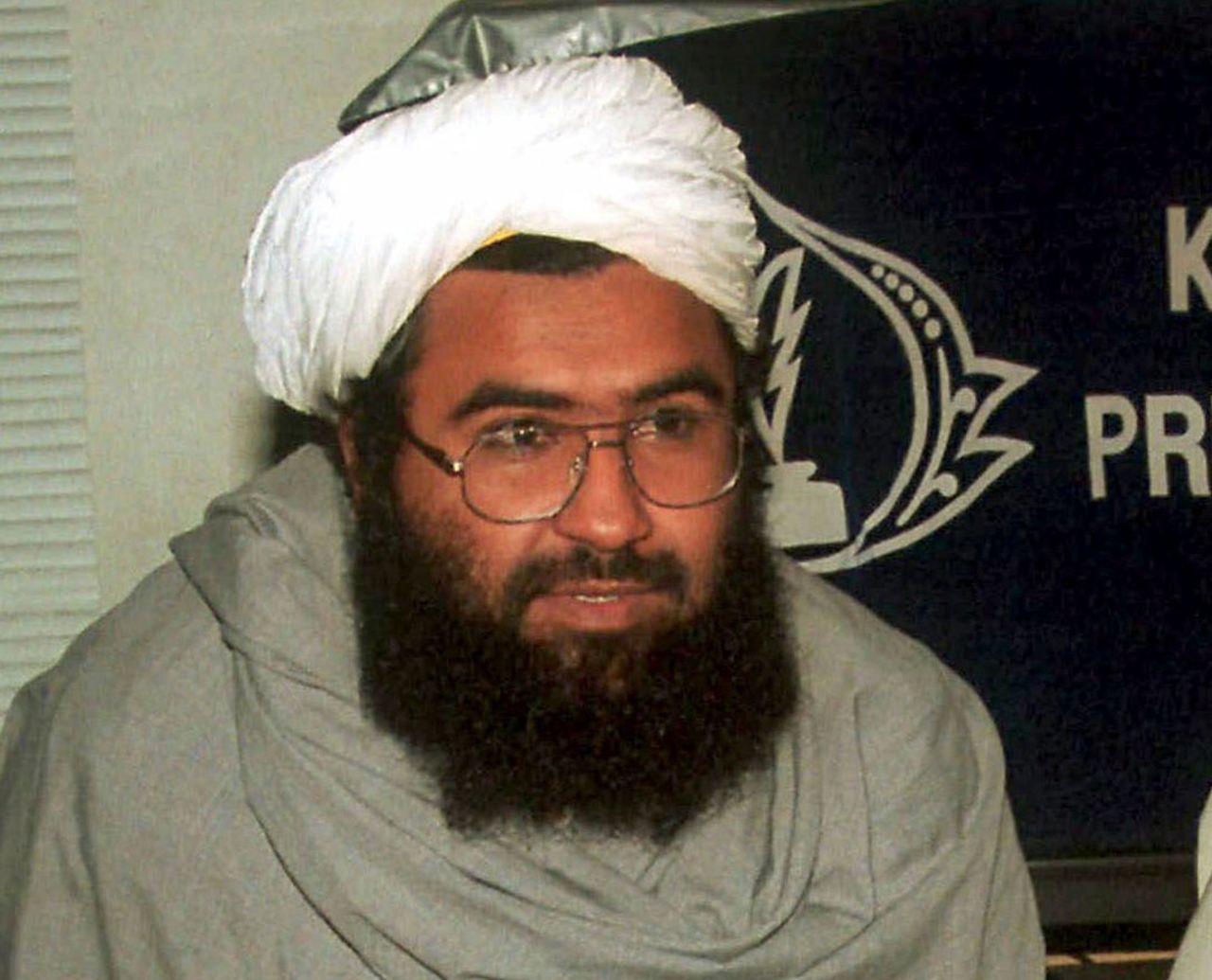
A Pakistani militant chief targeted in India’s overnight strikes said 10 of his relatives, including five children, had been killed by the attack.
Masood Azhar, the leader of Jaish-e-Mohammed (JeM) – one of two militant factions that India’s military said it targeted overnight – said his older sister, his brother-in-law, his nephew and niece were among those who died.
“The coward Modi targeted innocent children, unmarried women and the elderly,” Azhar said in a statement on Wednesday. “The grief and shock are so much that they cannot be described.”
The Indian military said it targeted “terrorist infrastructure” across nine sites in Pakistan’s densely populated Punjab province and Pakistan-administered Kashmir. India claimed that no military sites were targeted in its strikes and that there had been no reports of civilian casualties.
Pakistan, however, said Wednesday’s strikes had harmed civilians and targeted mosques across six locations in its territory. Jaish-e-Mohammed, which translates to the Army of the Prophet Mohammed, is a Pakistan-based group that operates across Kashmir, and seeks to unite the Indian-controlled area of the disputed state with Pakistan.
While the US and the UN Security Council listed JeM as a terrorist organization in 2001, an effort to include its leader, Masood Azhar, as an “internationally designated terrorist” was vetoed by China
India has launched missiles deep inside Pakistan in a major escalation. Here's the latest
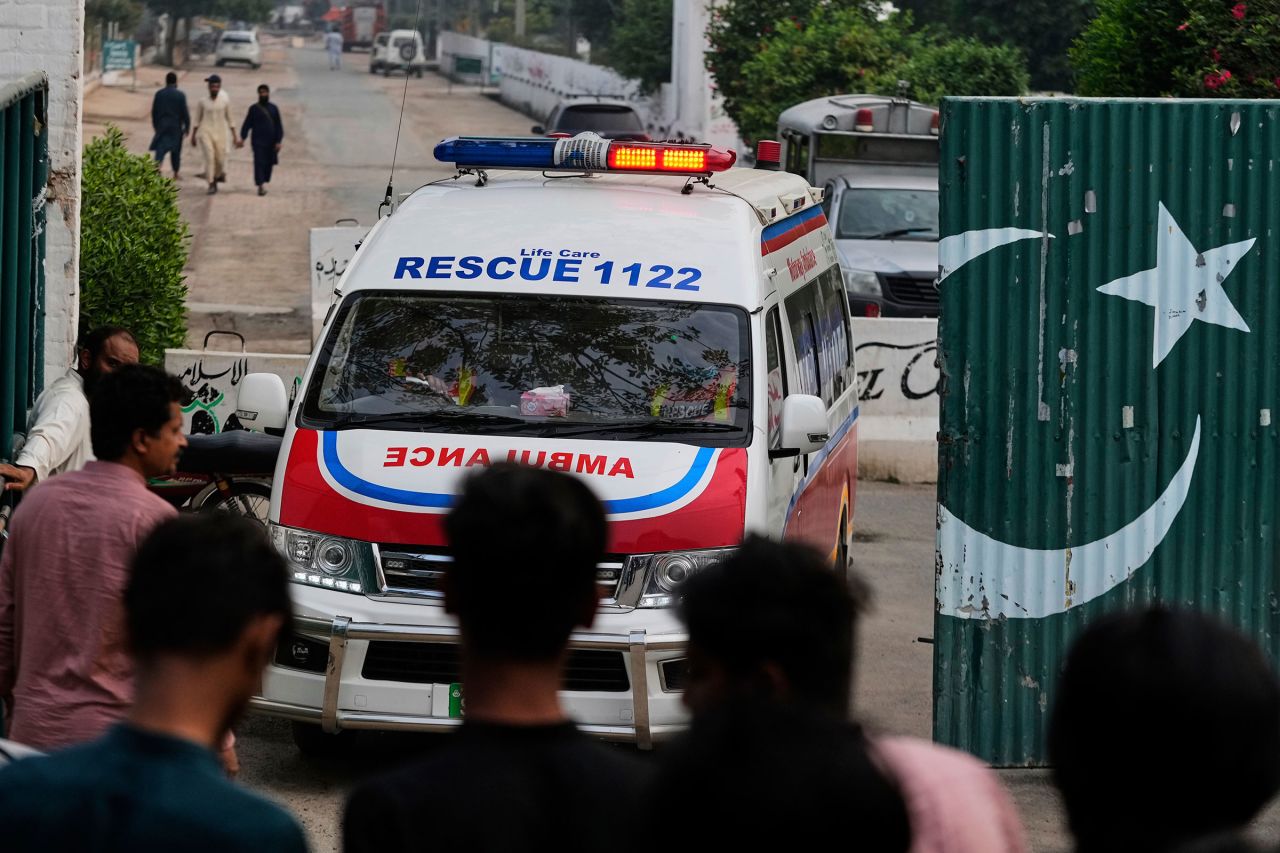
India launched early-morning strikes on both Pakistan and Pakistan-administered Kashmir on Wednesday, and Islamabad claimed it had shot down five Indian Air Force jets in “self-defense,” a major escalation between the rivaling neighbors.
The strikes came more than two weeks after a massacre of tourists in Indian-administered Kashmir that New Delhi blamed on its neighbor — which Islamabad denied.
Here’s what we know:
- India’s strikes: India’s missile strikes targeted “terrorist infrastructure” across nine sites in Pakistan’s densely populated Punjab province and Pakistan-administered Kashmir, it said. Pakistani Prime Minister Shehbaz Sharif described the attack as “an act of war,” and Islamabad has vowed to retaliate.
- Indian jets “downed”: Pakistani military sources said they shot down five Indian Air Force jets and one drone in “self-defense,” claiming three Rafale jets – sophisticated multi-role fighters made in France – were among those downed. CNN cannot independently verify the claim and has reached out to the Indian government for a response.
- Unidentified aircraft crash: A resident and government official told CNN that one unidentified fighter aircraft had crashed on a school building in Indian-administered Kashmir. It was not immediately clear from the pictures of the wreckage who the aircraft belonged to.
- Water infrastructure hit: Indian shelling hit an intake structure on the Noseri Dam on the Neelum river in Pakistan-administered Kashmir, a Pakistani security source told CNN.
- Casualties: Pakistan’s military said the attack killed at least 26 civilians, according to Reuters. Shelling by the Pakistani military has killed at least eight people on the Indian side of the Line of Control in Kashmir, a senior Indian defense source told CNN.
- High-level meeting: India’s Prime Minister Narendra Modi has chaired a meeting with senior ministers from his cabinet following the strikes. Modi has not spoken publicly since India launched the strikes early Wednesday. Modi has also briefed Droupadi Murmu, the country’s president, on the latest military action, according to a post on Murmu’s official X account.
- Massacre fallout: Muslim-majority Pakistan and Hindu-majority India have inched closer to open conflict since gunmen massacred 26 people in a popular holiday spot in Indian-administered Kashmir last month, with India’s Hindu-nationalist government under intense pressure from its base to respond to the attack. Pakistan was swift to deny any link to the attack but in the days following, both countries swiftly downgraded ties with each other and have since been engaging in escalating tit-for-tat hostilities. Analysts said it was a question of when, not if, India retaliated.
- Wider impact: The strikes have put the region on alert, with commercial airlines keeping almost entirely clear of Pakistani airspace, flight-tracking website Flightradar24 showed. The airport in Srinagar, Indian-administered Kashmir’s biggest city, has been closed to civilian traffic, and several airlines have suspended or diverted flights to Pakistan and northwest India.
Pakistan’s army chief under the spotlight after India strikes, analysts say

Syed Asim Munir, a former spy chief who was appointed as Pakistan’s army chief in 2022, will play a key role in determining how far conflict may escalate following India’s strikes on Wednesday, analysts told CNN.
Seen as a hardliner on India by critics, Munir is expected to face pressure at home after India’s missile attack, which it said had struck “terrorist infrastructure,” and Islamabad said had killed at least eight people, including children.
Munir’s appointment came amid intense debate around the military’s influence on public life.
Pakistan’s powerful military is often accused of meddling in the politics of a country that has experienced numerous coups and been ruled by generals for extended periods since it gained independence from Britain in 1947.
“I think that for Pakistan not to retaliate somehow would undermine his (Munir’s) credibility and his influence,” said Malcolm Davis, senior analyst at the Australian Strategic Policy Institute.
CNN Military Analyst Cedric Leighton said Munir joined “a long line of military leaders who have basically called the shots in Pakistani politics for a very long time.”
He said Munir has viewed Pakistan’s conflict with India through the lens of religion and treated the tensions as a national issue.
“He believes that he is defending the honor of his country,” Leighton said.
Against the backdrop of him is the Indian government’s nationalist sentiment which adds to the “recipe for potential conflict,” the retired colonel said.
Indian shelling hit dam infrastructure on crucial river, Pakistan security source alleges
Indian shelling hit an intake structure on the Noseri Dam on the Neelum river in Pakistan-administered Kashmir, a Pakistani security source told CNN.
The Noseri Dam was targeted by Indian shelling last night around 2 a.m. local time, damaging the intake gates, according to the source.
CNN has contacted India’s foreign and water ministries for comment.
The Neelum is part of the sprawling Indus river system, a vital resource supporting hundreds of millions of livelihoods across Pakistan and northern India.
Following the massacre of 26 civilians in Indian-administered Kashmir last month that India blamed on Pakistan, India suspended the Indus Water Treaty, a treaty which governs the sharing of water from the Indus River system.
The Indus originates in Tibet and flows through China and Indian-controlled Kashmir before reaching Pakistan.
Islamabad has called any attempt to stop or divert water belonging to Pakistan an act of war.
Indian prime minister chairs high-level meeting after strikes on Pakistan

India’s Prime Minister Narendra Modi has chaired a high-level meeting with senior ministers from his cabinet.
In video released by his office, Modi can be seen sitting alongside senior government figures including Home Affairs Minister Amit Shah, Minister of Defense Rajnath Singh and National Security Advisor Ajit Doval.
Modi has not spoken publicly since India launched strikes on neighboring Pakistan in the early hours of Wednesday.
A UN team has arrived at a site in Pakistan-administered Kashmir that Islamabad says was hit by India’s strikes
A United Nations team has arrived at a site in Pakistan-administered Kashmir that Islamabad says was hit by India’s strikes, a CNN stringer said.
The CNN stringer at the site reported seeing two white UN vehicles in the city of Muzaffarabad, where Pakistan said a mosque was struck early Wednesday.
India claimed that no military sites were targeted in its strikes and that there had been no reports of civilian casualties.
Pakistan, however, said Wednesday’s strikes had harmed civilians and targeted mosques across six locations in its territory.
India’s Prime Minister Narendra Modi postpones overseas trip
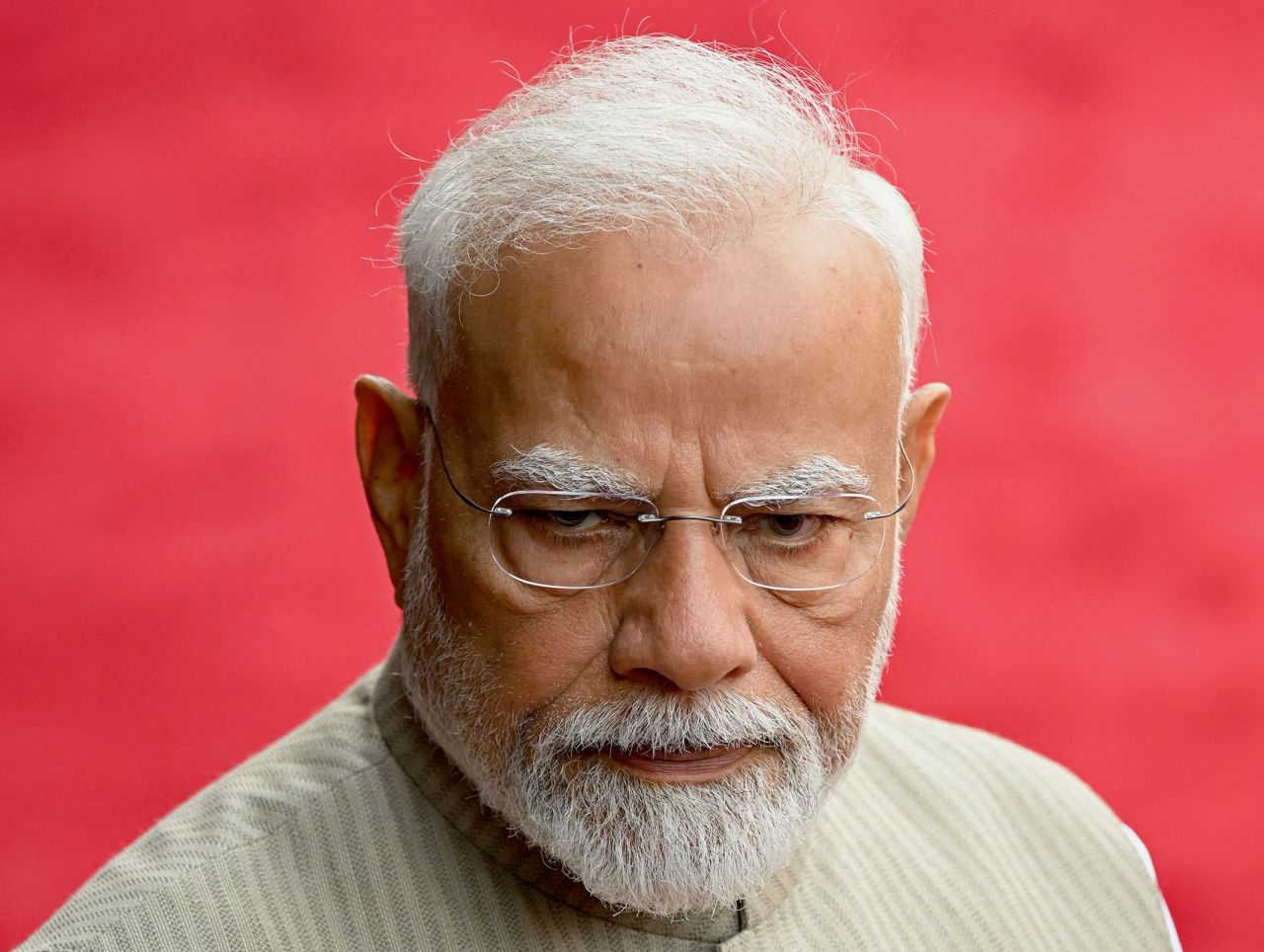
India’s Prime Minister Narendra Modi has postponed a trip to visit to Croatia, The Netherlands and Norway, a senior government official told CNN.
No official reason has been given for the delay, but the announcement comes hours after New Delhi launched strikes on Pakistan and Pakistan-administered Kashmir.
Modi has not publicly spoken about the military action on India’s neighbor.
Residents of Pakistan-administered Kashmir forced to flee their homes during Indian attacks

Residents of Pakistan-administered Kashmir say they were forced to flee their homes and take shelter after India launched missile strikes on its neighbor.
“Shells landed close to our home and we came out and took our livestock and belongings and took shelter,” said Bashir.
Another resident, Shakeel Butt, told CNN she had to flee when shells started falling on the village. “A shell landed at a house close to the mosque in which two people were injured. Shells also hit other houses in our area and we fled from our area to a safer place,” she said.
India’s military said it had struck nine “terrorist camps” in Pakistan and Pakistan-administered Kashmir. At least 26 civilians were killed due to Indian army action, a Pakistan military spokesperson said, according to the Reuters news agency. Pakistan said it retaliated by shooting down five Indian Air Force jets and a drone. India has not confirmed the fighter jet losses.
Zeeshan Akram, a resident of Muridke in Pakistan’s Punjab province, told Reuters that drones appeared in the early hours of Wednesday and struck a mosque in the city, destroying it.
“Fear and terror spread in people. People had gone out into the fields, in the open, just like that,” Waqas Ahmed, another resident of Muridke, told Reuters.
Pakistan summons Indian envoy to protest strikes
Pakistan’s Ministry of Foreign Affairs said it summoned the Indian chargé d’affaires in Islamabad – the head of India’s diplomatic mission in the country – to formally protest India’s strikes in Pakistan and Pakistan-administered Kashmir on Wednesday.
“It was conveyed that India’s blatant act of aggression constitutes a clear violation of Pakistan’s sovereignty. Such actions are in contravention of the UN Charter, international law, and established norms governing inter-state relations,” the ministry said.
It called the strikes “unprovoked,” saying they had killed several civilians including women and children, and warned that India’s military action posed a “serious threat” to peace in the region.
The leader of India’s diplomatic mission in Pakistan used to be the high commissioner – but clashes in 2019 between the two countries prompted them to downgrade diplomatic ties with each other and remove the high commissioner, leaving the chargé d’affaires in place instead.
Pakistani shelling kills at least eight people in Indian-administered Kashmir, source says

Overnight shelling by the Pakistani military has killed at least eight people on the Indian side of the Line of Control in Kashmir, a senior Indian defense source told CNN.
India and Pakistan have had near daily exchanges of fire across the Line of Control since the April 22 tourist massacre that sent relations between the two sides plummeting.
Pakistan’s military has previously confirmed it shelled Indian positions in Indian-administered Kashmir overnight in response to India’s airstrikes on its territory. India accused the Pakistanis of unprovoked firing over the Line of Control, the de facto border that divides Kashmir.
This post has been updated with the latest on the shelling.
India says military strikes targeted “terrorist infrastructure” after Pakistan failed to act against such groups

India said its military strikes on Pakistan targeted Lashkar-e-Tayyiba “terrorist infrastructure” sites after Pakistan failed to act against the groups based in its territory behind a massacre of tourists in Indian-administered Kashmir last month.
The operation – dubbed “Operation Sindoor” – lasted for 25 minutes from 1.05 a.m.-1.30 a.m. local time, Col. Sofiya Qureshi said in a press conference on Wednesday.
None of the three Indian officials who spoke at the briefing responded to a claim from Pakistan that it had shot down five Indian Air Force jets during India’s attack. CNN has been unable to verify the claim.
The briefing started with a video montage of the aftermath of attacks on India through the years that New Delhi has blamed on its neighbor Pakistan – and which Pakistan has long denied.
The officials also showed footage of what they said were strikes on the targets in Pakistan.
The officials showed a map marking locations of what they said were several Lashkar-e-Tayyiba and Jaish-e-Mohammed training camps in Pakistan-administered Kashmir and inside Pakistan’s Punjab province.
Indian foreign secretary Vikram Misri again blamed Pakistan for the April attack on civilians in Indian-administered Kashmir and accused Islamabad of supporting “terrorism” in the disputed region.
The targets were selected based on “intelligence,” Misri said.
Qureshi said no military installation was targeted in the operation and there had been no reports of civilian casualties in Pakistan.
A Pakistan military spokesperson said at least 26 civilians were killed due to Indian army action, according to Reuters.
26 civilians killed in India attacks, Reuters reports, citing Pakistan military spokesperson
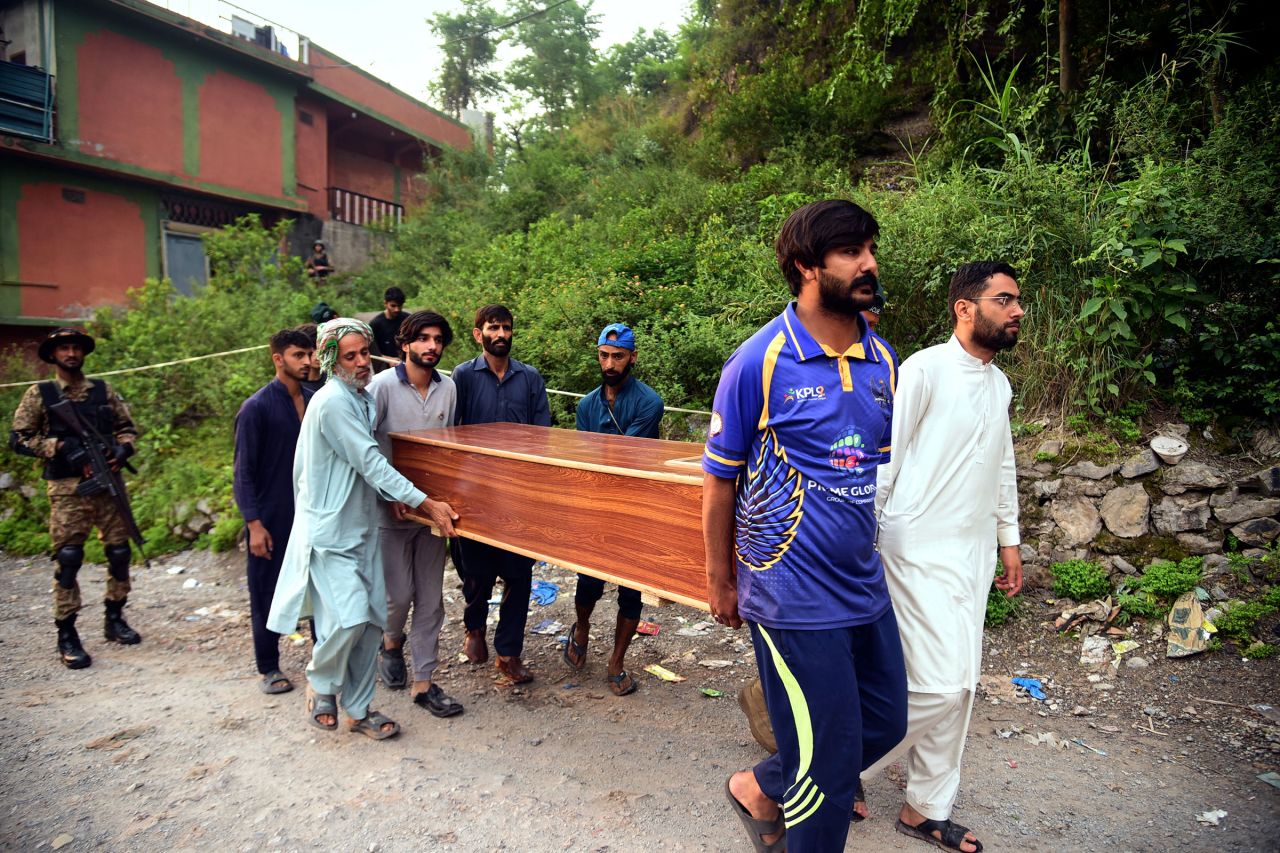
At least 26 civilians were killed and 46 injured due to Indian army action, a Pakistan military spokesperson said, according to Reuters.
Much Indian news coverage of the attack strikes nationalist tone
Heavily nationalist rhetoric has colored the coverage from many Indian news channels since New Delhi’s strikes against Pakistan.
“How India crushed the enemy,” flashed a headline on one news channel. “India strikes Pakistan hard,” read another.
One news organization carried an image depicting Prime Minister Narendra Modi holding a Captain America-esque shield with the colors of the Indian national flag.
On some channels, animations of military jets and explosions could be seen across screens as anchors covered “Operation Sindoor,” the official name of India’s military attack on Pakistan and Pakistan-administered Kashmir.
Such jingoism is not uncommon for India’s often loud and boisterous media, which has been accused of toeing the government line.
Modi aims to govern a proud, nationalistic nation that believes in its ability to handle difficult situations. Following the tourist massacre in Indian-administered Kashmir, many media outlets immediately called for blood.
Indian-administered Kashmir authorities order evacuation of citizens from “vulnerable areas”
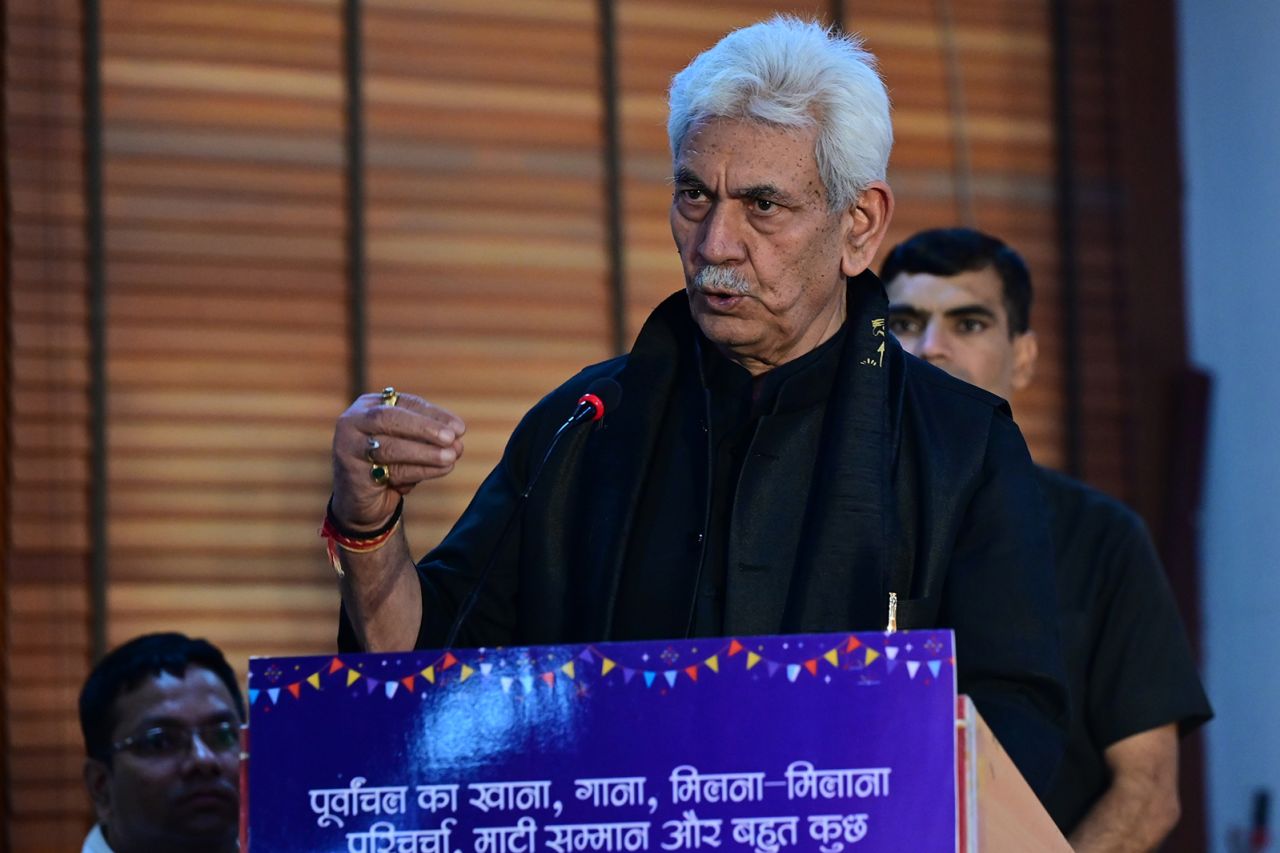
Authorities in Indian-administered Kashmir have ordered the evacuation of citizens from areas they deemed dangerous, as the conflict between New Delhi and Islamabad escalates.
The Lieutenant Governor of Jammu and Kashmir, Manoj Sinha, has directed districts to move villagers from “vulnerable areas to safer locations.”
Accommodation, food and medicines will be provided for evacuated citizens, the Lieutenant Governor’s office said on X.
The orders come hours after India launched a series of strikes on what it called “terrorist infrastructure” in Pakistan and Pakistan-administered Kashmir, pushing the rival neighbors to the brink of full-scale war.
Pakistan said the attack killed at least eight people, including children. The Indian Army said three civilians in Indian-administered Kashmir were killed in cross-border shelling by Pakistani troops.
Modi right-hand man “proud of our armed forces”
A key ally of Indian Prime Minister Narendra Modi said he is “proud of our armed forces” following the country’s strikes in Pakistan and Pakistan-administered Kashmir.
“#OperationSindoor is Bharat’s response to the brutal killing of our innocent brothers in Pahalgam,” Home Minister Amit Shah wrote on X, using the Hindi name for India. Shah has been beside Modi’s side for decades and is often referred to as the second most powerful person in India.
Wednesday’s strikes come more than two weeks after militants killed 26 civilians in Indian-controlled Kashmir. New Delhi pinned the massacre on Pakistan, though Islamabad denied involvement.
China expresses regret over India’s military strikes, calling for calm and restraint
China has expressed regret over India’s military action against Pakistan and said it’s concerned about the current developments.
As the conflict between Pakistan and India escalates, China has found itself in a diplomatic tight spot.
For weeks, Beijing has been closely watching the tit-for-tat responses between its longtime “ironclad friend,” Islamabad, and New Delhi, a regional rival with which it has a long-running border dispute.
The flare-up comes as China has been trying to improve relations with India as part of a broader diplomatic push to shore up ties with neighbors and trade partners alike to counter pressure from the Trump administration.
Pakistan, meanwhile, is one of China’s closest partners and a key supporter of its Belt and Road Initiative. China is Pakistan’s main arms supplier, with Chinese arms making up 81 per cent of Pakistan’s weapons imports in the past five years, according to data from Swedish think tank the Stockholm International Peace Research Institute.
On April 27 in a phone call with his counterpart, China’s foreign minister Wang Yi expressed support for Pakistan and said China is closely following developments between the countries.
In pictures: Scenes from Kashmir and Pakistan
India launched military strikes on targets in Pakistan and Pakistan-administered Kashmir, targeting what it called “terrorist infrastructure” on Wednesday. The attack comes more than two weeks after militants massacred tourists in Indian-administered Kashmir, which New Delhi blamed on its neighbor — and Islamabad denied.
Pakistan said eight people were killed by India’s attack in what the country’s Prime Minister Shehbaz Sharif described as “an act of war.” Pakistan also said it shot down five Indian Air Force jets and a drone.
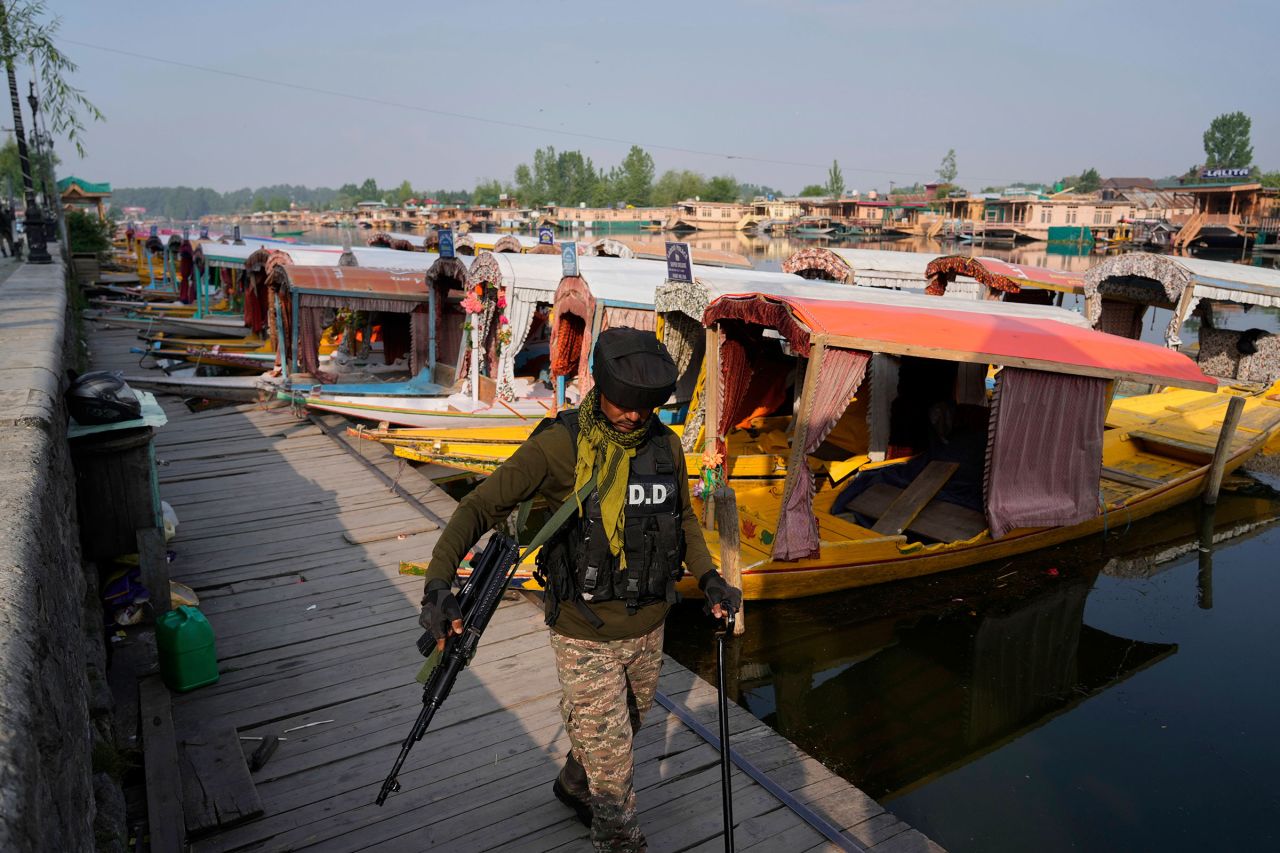
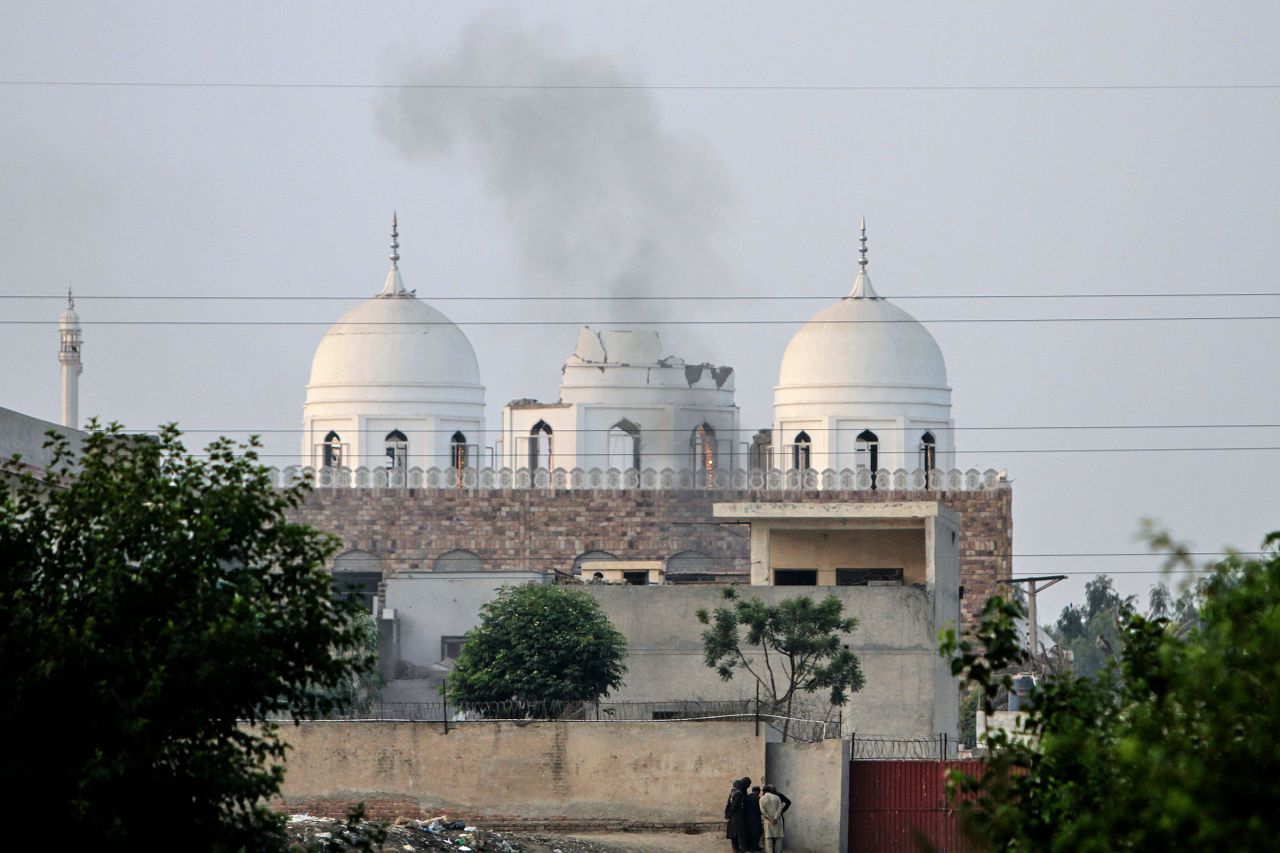
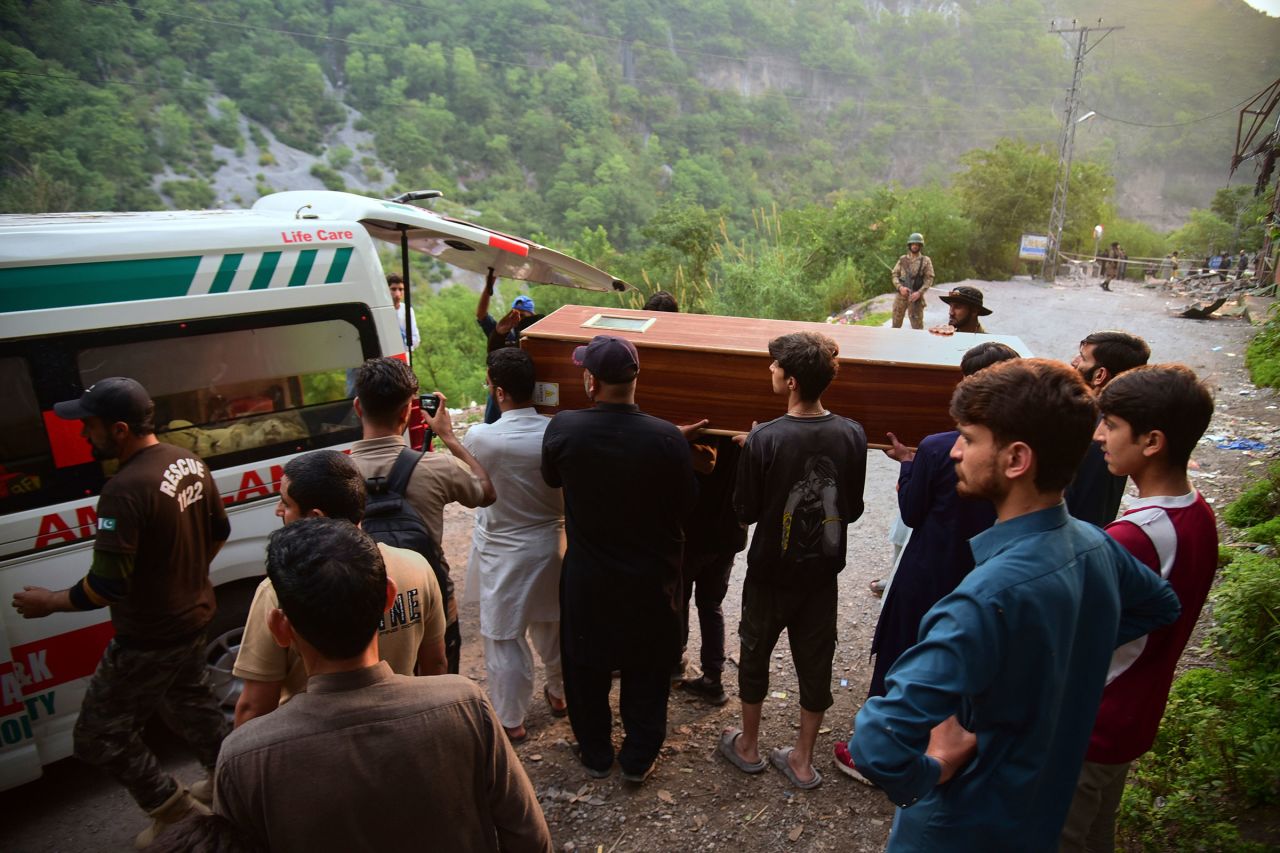
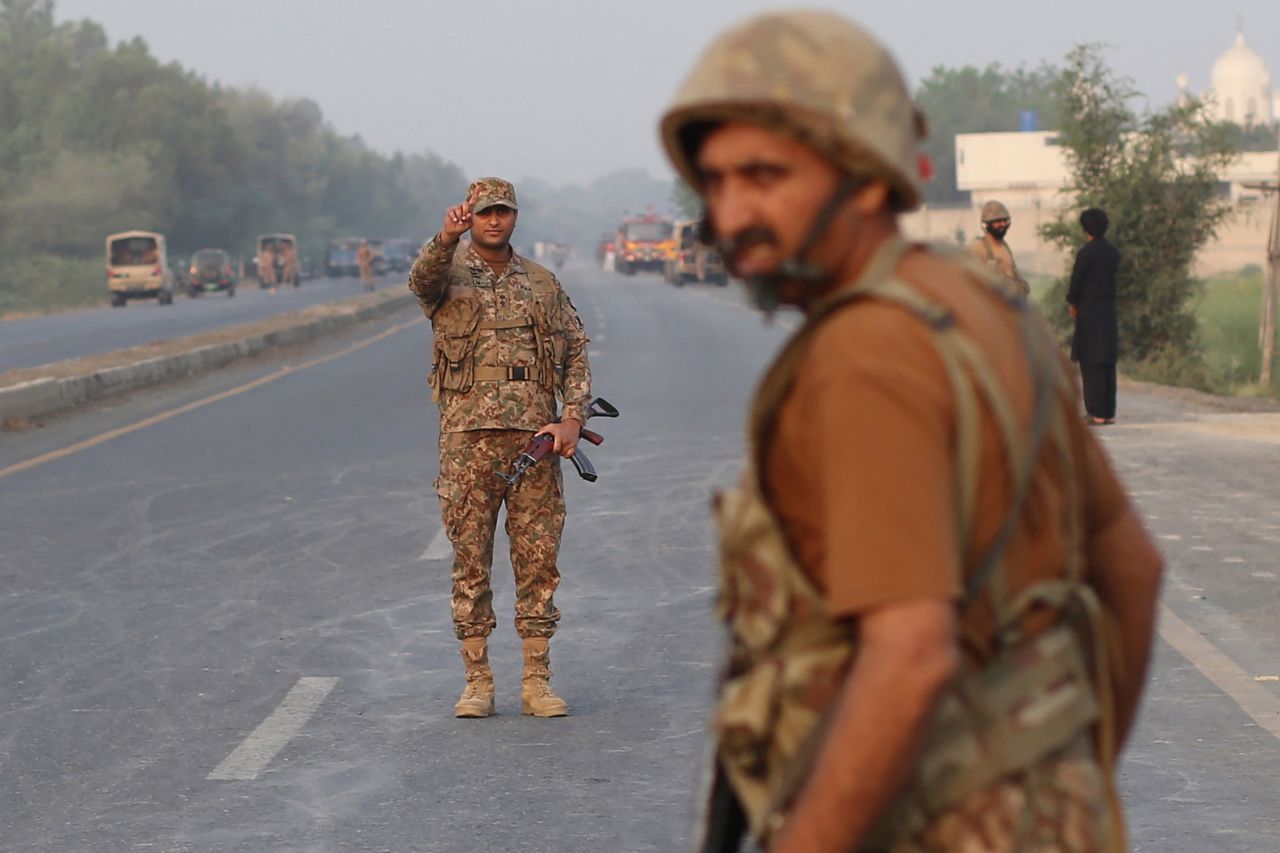
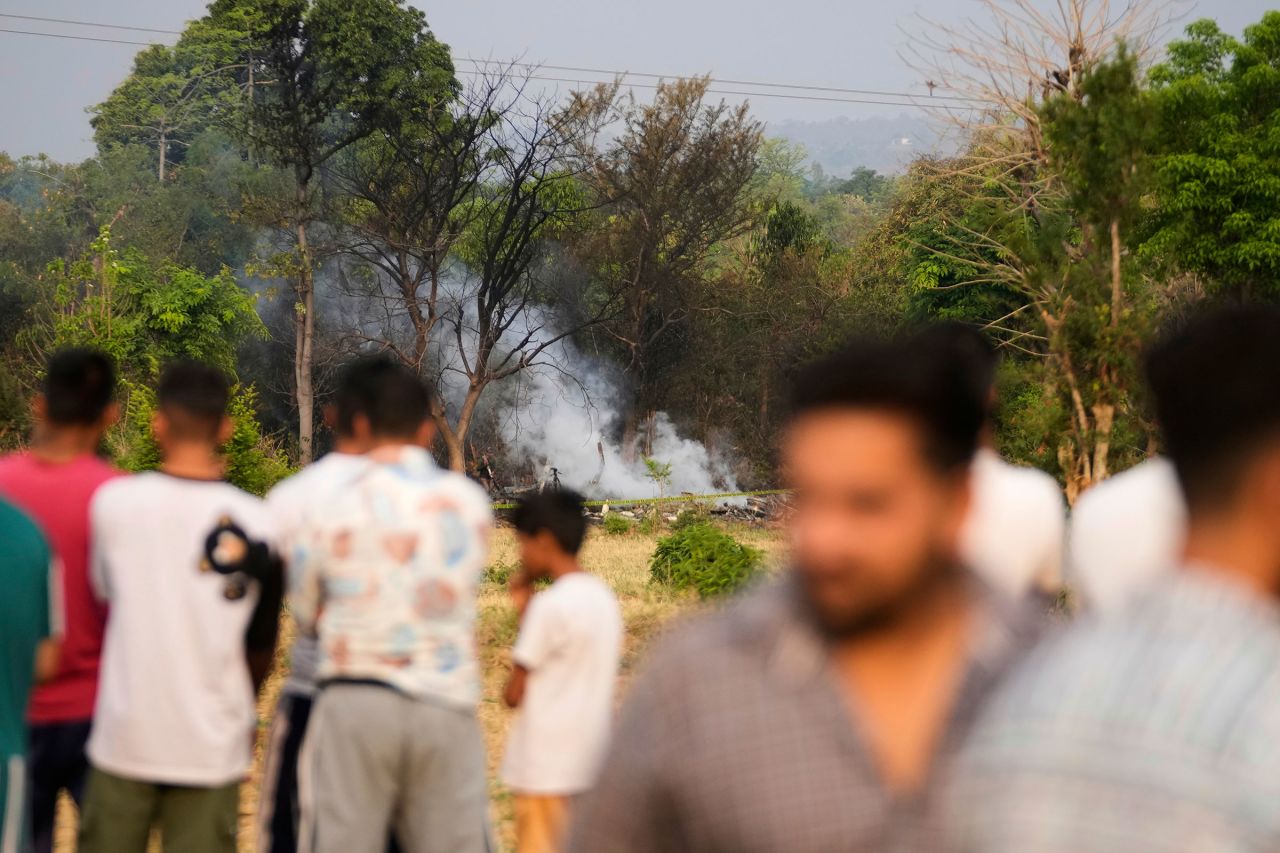
Pictures of downed aircraft show part from French manufacturer
Pictures taken of parts of an aircraft that crashed in Indian-administered Kashmir show the label of a French manufacturer.
The label shows an aircraft part from French filtration company Le Bozec et Gautier. Le Bozec is a French-based subsidiary of Minnesota’s Donaldson Company.
A press release from Donaldson in 2005, when it acquired Le Bozec, says the French company “designs, manufactures and sells filtration equipment for the management of air, fuel, hydraulic fluid and air pressure on aircraft and helicopters.”
Pakistan claims to have shot down three of India’s top-of-the-line French-made Rafale fighter jets, but experts said it was not possible to say whether the part came from that aircraft, nor Pakistan’s claims of shooting down the aircraft.
Peter Layton, a senior fellow at Griffith Asia Institute and former Australian air force officer, said the part looked like it could be from a fuel tank, possibly an external drop tank.
The Pakistan Air force also has French-made Mirage III and V jets, Layton added.
This post has been updated with additional information.
Residents of Indian-administered Kashmir “tense and anxious” after night of shelling
Residents of Indian-administered Kashmir woke to the sounds of explosions and shelling after India launched cross-border strikes against its neighbor, with some hiding in fear and others cheering the strikes as long-overdue revenge.
“I woke up around 2:30 a.m. and heard sounds of explosions and firing across the border. This went on until 5:30 a.m.,” said the resident, who requested not to be named.
India’s strikes – on what it called “terrorist infrastructure” – come more than two weeks after militants killed 26 civilians in Indian-controlled Kashmir. New Delhi pinned the massacre on Pakistan, though Islamabad denied those claims.
Pakistan said it shot down five Indian Air Force jets in response. India has not confirmed the fighter jet losses and CNN is unable to verify the claim.
“We spent a sleepless night because of the heavy shelling,” said one resident living in the village of Uroosa, close to the Line of Control that divides Indian- and Pakistani-controlled parts of Kashmir.
“There were cries of children, women and it was a desperate situation,” said the resident, who spoke on the condition of anonymity.
A 21-year-old student living in the village of Uroosa told CNN that “shelling was happening all night. Everyone is scared, there is damage in the area too. People are scared and are planning to leave.”
Elsewhere in India-administered Kashmir, residents cheered news of India’s attack, according to video footage by ANI.
Another resident told the outlet that “there was much anger among the people” following last month’s massacre. “Hence, this was indeed needed.”


